What is the full form of STFSTF: Special Task ForceSTF stands for Special Task Force. The Indian police's Special Task Force (STF) is a specialized division that manages very demanding and high-risk law enforcement missions. These activities include counter terrorism, counter insurgency, hostage rescue, and organized criminal operations. This elite team has received special training to handle these challenging scenarios. 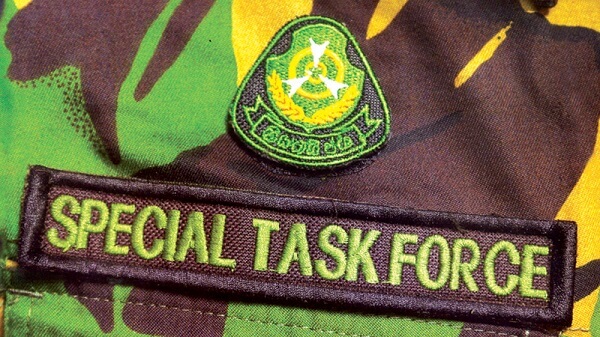
The STF is an essential part of India's law enforcement apparatus and plays a significant role in preserving the security and stability of the nation. In India's war against organized crime, the STF is also active. The unit collaborates with other law enforcement organizations to break up criminal networks and stop the flow of illicit drugs, guns, and other contraband. The team comprises highly skilled and prepared individuals and is known as one of India's top law enforcement organizations. HistoryIn response to the escalating threat of terrorism and insurgency in India, the STF was established in the late 1980s. It was established as a direct result of the country's law enforcement agencies being overburdened by the country's rising number of terrorist acts. The STF was established to respond swiftly to such occurrences and to offer a highly skilled and prepared unit to handle even the most difficult law enforcement operations. UP STF has an impressive history, having 81 Police Medals of Valor given out by the President of India during its brief existence of around 15 years, as well as 60 officers receiving out-of-turn promotions for acts of conspicuous courage. The STF is a multidisciplinary police force made up of officers from the state police, the Central Reserve Police Force, and the Border Security Force, among others. The staff members receive extensive training in various abilities, such as negotiating, tactical operations, marksmanship, and intelligence collection. The STF is armed with the most modern tools and technology, and its members are regularly trained, so they are prepared for any circumstance. The STF is one of India's most effective law enforcement agencies and has participated in several high-profile operations. The unit has taken part in hostage rescue missions, terrorist and criminal gang takedowns, and drug and illegal weapon seizures. Some of the most wanted offenders in India have been apprehended thanks in large part to the STF. 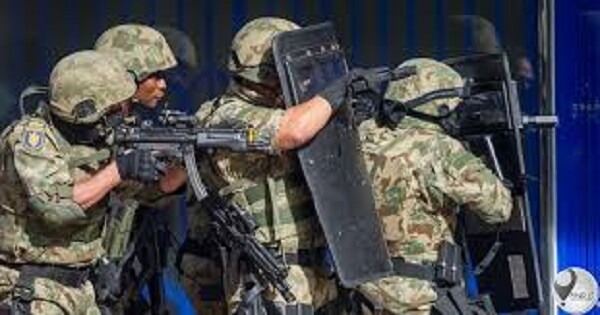
One of the STF's most significant operations was the hostage rescue following the 2008 terrorist attacks in Mumbai. The group was requested to eliminate the terrorists who had taken over hotels, eateries, and a train station, among other important buildings in the city. The hostages were released, and the situation was controlled after the STF could rapidly and efficiently neutralize the terrorists. Neutralizing the Naxalite insurgency in Chhattisgarh was another major operation carried out by the STF. The stability and security of India have been significantly disrupted by the Naxalites, a Maoist insurgent organization operating there for several decades. The STF was requested to deal with the Naxalite menace, and the group successfully decimated the insurgency, bringing stability and peace to the area. Why STF was EstablishedIn UP, the STF was quite effective at apprehending criminals and maintaining law and order. Since then, it has been a crucial component of the UP police. Following GO No. 1889 (1) VI-Pu-2-98-1100 (35) of the UP Government dated 4.5.98, the Special Task Force of the UP Police was established for the following purposes:
Special Task Force's TargetsThe level of complexity present mostly determines the objectives of a special task force. They could be immediate problems, like resolving a present crisis or tracking down a fugitive offender, or more difficult long-term problems, such as smuggling drugs, weapons, and other contraband. A special task force's goals are made known when it is established. The commanding commander often specifies the amount of personnel, supplies, tools, and financing needed. When the desired result is achieved, the group may be dissolved, and its members may resume their prior responsibilities. One must fulfil the following requirements to be eligible to join the Special Task Force (STF) in India:
Meet the physical requirements imposed by the relevant state police department. If you meet the requirements, you can apply for the STF through the recruitment process of the relevant state police department. Written tests, physical examinations, and personal interviews are frequently part of the selection process. To stay informed about the most recent recruitment drive, it is advisable to keep an eye on the official recruitment notifications and updates from the state police department. SalaryDepending on their position and state, officers in the Special Task Force (STF) in India earn different salaries. The pay scale in several states is roughly estimated as follows: 1. Uttar PradeshThe anticipated monthly salary for an STF constable in Uttar Pradesh is between Rs. 20,000 and Rs. 25,000, while the monthly salary for an STF sub-inspector ranges between Rs. 40,000 and Rs. 50,000. 2. MaharashtraIn Maharashtra, it is projected that an STF constable can make between Rs. 22,000 and Rs. 27,000 per month, while an STF sub-inspector can make between Rs. 45,000 and Rs. 55,000. 3. DelhiIn Delhi, it is believed that an STF constable can make between Rs. 30,000 and Rs. 35,000 per month, while an STF sub-inspector can make between Rs. 55,000 and Rs. 65,000. Considering the state, rank, and years of service, the real remuneration may differ from these preliminary figures. STF officers may also be qualified for other benefits and compensation, including housing, travel, and health care. The STF is responsible for upholding law and order, preserving tranquillity, and safeguarding Indian citizens. 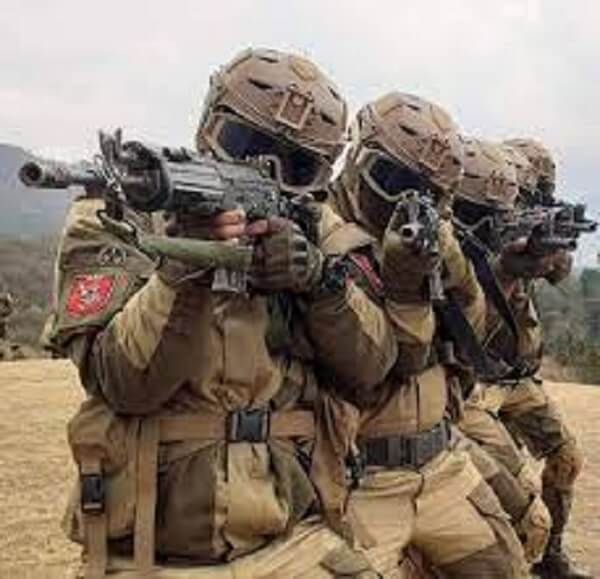
Responsibilities of STFThe STF's primary responsibilities are as follows: Operations against Terrorism The STF is in charge of stopping and thwarting terrorism in India. This entails operations based on intelligence, searching for terrorist hideouts, seizing terrorists, and suppressing their activities. The STF is outfitted with the most modern equipment and weapons to deal with such scenarios successfully. Anti-Naxal Operations The STF also puts down the Maoist insurgency known as Naxalism in India. To do this, operations must be carried out in Naxal-affected areas, and Naxal leaders must be captured or killed along with their hideouts. To eradicate Naxalism in India, the STF closely coordinates its efforts with those of the Indian army and paramilitary groups. Law and Order Maintenance The STF is in charge of upholding the rule of law in the state and preventing criminal activity. To do this, frequent patrols must be conducted, emergencies must be handled, and communal and sectarian violence must be avoided. The STF also helps the neighbourhood police stop riots and other violent incidents. 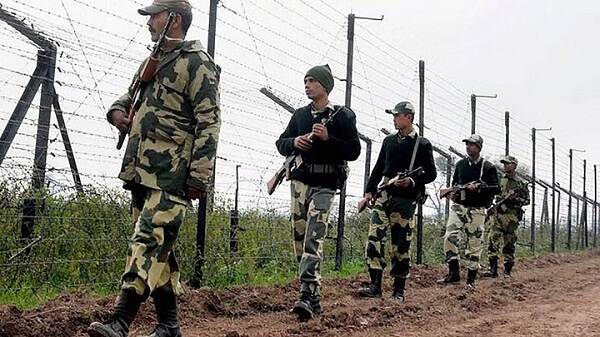
Crime Investigation The STF is outfitted with cutting-edge forensic tools and methods to investigate difficult-to-investigate crimes. The STF works closely with other law enforcement agencies to solve crimes and prosecute offenders. This involves investigating major offences, including terrorism, organized crime, cybercrime, and other similar crimes. VIP Security The STF protects the state's high-risk residents and VIPs. This includes giving politicians and government officials security. This includes protecting key individuals such as judges, legislators, and government officials. Their security and protection from any attempts on their lives are under the purview of the STF. Training and Development The STF is in charge of preparing its employees for the demands of contemporary police. The STF offers specialized training in policing, VIP protection, anti-Naxal operations, and other fields. To guarantee that its members are effective in the field, the STF also trains them in weaponry and technologies. Community Policing The STF collaborates closely with the community to combat crime and uphold law and order. The STF collaborates with NGOs and local community leaders to address the social and economic problems that fuel crime and violence. The STF collaborates with regional civic leaders. As a result of these tight ties, the STF plays a significant role in community policing. The Special Task Force (STF) is essential to preserving India's security and stability. The STF is a crucial part of India's law enforcement system because of its dedication to serving and defending the nation's citizenry. The main responsibilities of the STF include counterterrorism operations, anti-Naxal operations, upkeep of law and order, crime investigation, VIP protection, training and development, and neighbourhood policing. The STF is outfitted with cutting-edge technology and training to manage difficult situations efficiently. What are the Special Task Forces of India?India, the largest democracy in the world, has a wide variety of cultural traditions and a sizable population. The nation has various law enforcement organizations and specialized task forces to uphold stability, security, and peace. These specialized task groups have received training to deal with various criminal activities and crisis scenarios. They are important to India's security system and help maintain the nation's law and order. Central Reserve Police Force (CRPF)One of India's main special task forces is the Central Reserve Police Force (CRPF). It is a paramilitary group that works for the Ministry of Home Affairs and is principally in charge of upholding domestic security and conducting peacekeeping operations. The CRPF is also charged with protecting crucial infrastructure and upholding law and order during elections and other significant occasions. The CRPF is prepared to combat various threats, including terrorism, insurgency, and intergroup violence, because of its modern equipment and training. Border Security Force (BSF)Another significant special task force in India is the Border Security Force (BSF). The BSF is a well-equipped and highly trained force that can handle various security challenges in India. The BSF guards India's land borders with Bangladesh and Pakistan. Along with conducting anti-smuggling operations, the BSF also works to stop illegal immigration and transnational combat terrorism. National Security Guard (NSG)The foremost anti-terrorist organization in India is the National Security Guard (NSG). It is a highly skilled and equipped special force that can handle a variety of security threats to India. The NSG is trained in various combat missions, including amphibious operations and urban warfare, and is armed with modern equipment. The NSG is frequently requested to conduct counterterrorism operations and hostage releases. 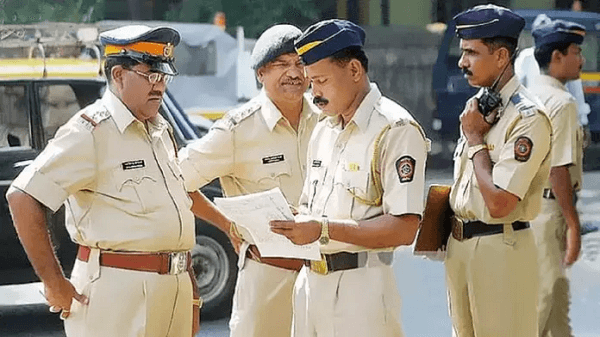
Central Industrial Security Force (CISF)Another significant special task force in India is the Central Industrial Security Force (CISF). The CISF is prepared to deal with various threats, such as terrorism, insurrection, and sabotage, because of its sophisticated equipment, technology, and training. Industrial facilities, airports, and seaports are just a few vital installations for which the CISF provides security. The CISF also secures India's nuclear power plants, airports, and other crucial facilities. Indo-Tibetan Border Police (ITBP)An elite task force known as the Indo-Tibetan Border Police (ITBP) is in charge of guarding India's border with China. The ITBP is prepared to deal with various challenges, such as terrorism, insurgency, and smuggling, because of its modern equipment and training. The ITBP is also involved in securing necessary facilities and upholding law and order during elections and other significant occasions. Special Protection Group (SPG)The Special Protection Group (SPG), an elite security unit of India, protects the Prime Minister and other important government figures. The SPG is a well-equipped and highly trained force that can handle a variety of security threats to India. The SPG is trained in various combat activities, including amphibious operations and urban warfare, and is armed with modern equipment. Rapid Action Force (RAF)Another crucial special task force in India is the Rapid Action Force (RAF). The RAF is a specialist force equipped to manage riots, racial violence, and other forms of civil unrest. The RAF is trained in various combat activities, including urban warfare and crowd control, and is armed with cutting-edge equipment. The RAF is frequently requested to uphold law and order during elections and other significant events. Therefore, India has various specialized task forces that deal with various security and stability challenges. These forces are a significant component of India's security infrastructure and serve a critical role in preserving peace and security. Each of these special task groups has a distinct purpose, and they cooperate to maintain the nation's safety and security. ConclusionIndia also has a variety of intelligence agencies that are essential to ensuring national security, in addition to these special task groups. The main intelligence organization in India, the Intelligence Bureau (IB), is in charge of conducting counterintelligence and internal intelligence activities. India's foreign intelligence organization, the Research and Analysis Wing (RAW), obtains information about other nations and their actions. India's special task forces and intelligence agencies are outfitted with cutting-edge equipment, and they undergo intense training in various combat activities, such as counterterrorism and urban warfare. They are a crucial component of India's security system and work relentlessly to uphold peace and security throughout the nation. In conclusion, India's intelligence services and special task forces are essential to preserving the country's security and stability. They collaborate to maintain the nation's safety and security and are well-equipped and trained. Given the significance of these troops, the Indian government continues to invest in their education, gear, and capabilities to keep them prepared to respond to any threat to the country's security.
Next TopicFull Forms List
|
 For Videos Join Our Youtube Channel: Join Now
For Videos Join Our Youtube Channel: Join Now
Feedback
- Send your Feedback to [email protected]
Help Others, Please Share









